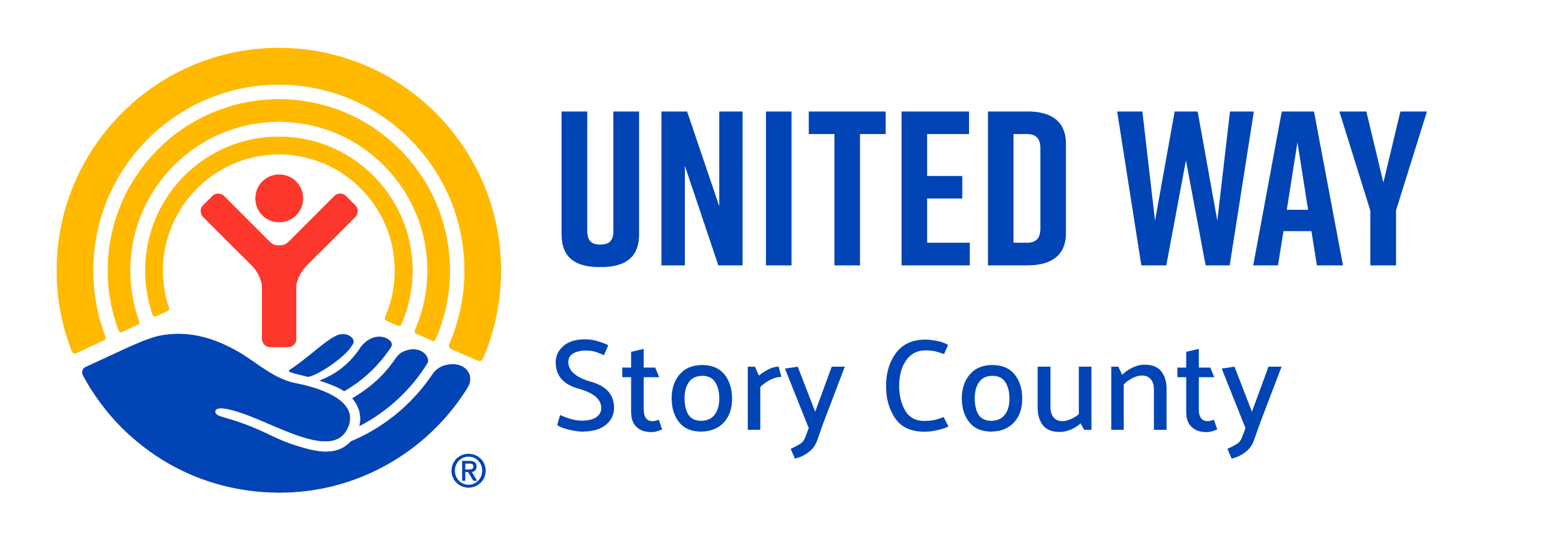United Way Funding Allocation: Income
Meaghan Szpak, marketing intern
Through the annual LIVE UNITED campaign, United Way of Story County (UWSC) is able to fundraise money, which is then allocated back into the community through program funding. The funding is distributed to programs that address the areas of education, income and health – the three key ingredients for a good quality of life.
Thirty-one percent of the funding allotted back into community programs is invested in the area of income, which helps provide financial stability to families struggling to meet basic needs. Nearly one-third of working families live from paycheck to paycheck.
The youngest group of individuals impacted in the area of income are helped through The Salvation Army (TSA). Through the food pantry, TSA distributes diapers and wipes for infants and toddlers when funding allows. From having these supplies provided, two benefits result. Infants and toddlers get clean, quality diapers and families are able to put their money toward other expenses such as rent, utilities, and food. UWSC was able to allocate $2,400 through the monthly grants program to help TSA purchase diapers and wipes.
Income needs are also being addressed through financial coaching services. The Iowa Able Foundation provides two programs, one for youth and one for adults. UWSC allocated $1,350 in grant dollars toward the Money Smart program. Money Smart offers financial coaching to youth ages 13-18 through a four week program that teaches them the skills to make good financial decisions that will carry them into adulthood. By promoting age-appropriate financial understanding, youth are being set up for life-long financial success.
A $500 grant from UWSC was given to support the Cents and Sensibility Financial Coaching program which works with current and prospective borrowers with disabilities or aging. An Accredited Financial Coach works one-on-one with individuals who have applied for a loan with Iowa Able or have an active loan. The process starts with teaching basic financial education and a review of the individual's budget. Once a credit report is obtained, it is reviewed and debts are discussed. An individualized plan is made, including (but not limited to) settlements of debts, disputing collection accounts, assistance with student loan forgiveness, and setting up budgets.
Programs are also available through Good Neighbor Emergency Assistance to support individuals and families who just need some help gaining their footing. The emergency rent and utility assistance program is to help a family in jeopardy of being evicted from their apartment or having their utilities disconnected. Applicants are required to provide documentation of their need, as well as information on their particular financial situation. A personal interview is conducted with each individual to assess needs and referral information to other community organizations for services is made. When support for rent and/or utility is approved by Good Neighbor, payments are made directly to landlords, property managers, or utility companies. UWSC provided $6,000 of grant funding toward this program above what is allocated annually to help meet the rising need.
There are many programs throughout the community that address financial assistance to provide support for basic needs. Through funding of these programs, UWSC is invested in improving the area of income throughout Story County.
UWSC is a strategic leader in building countywide partnerships to identify needs and to develop, support and evaluate effective human services, especially in the areas of education, income and health for our diverse community.
###
